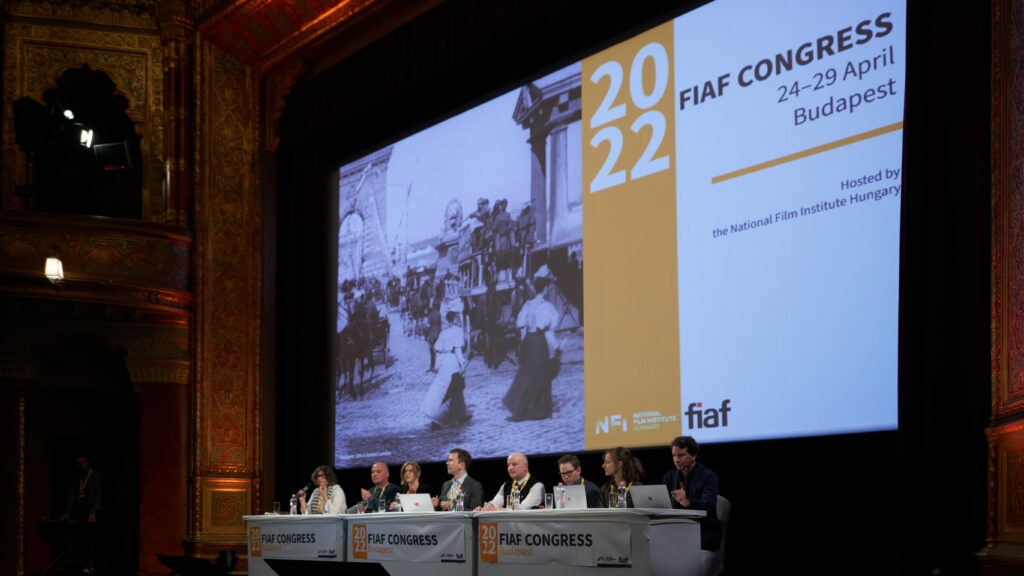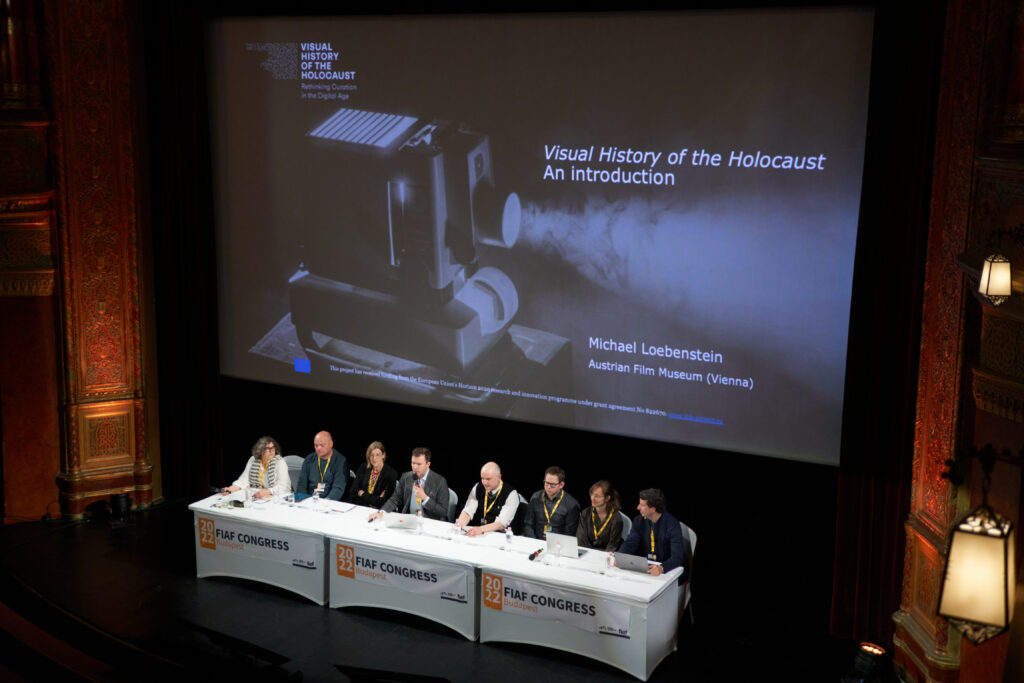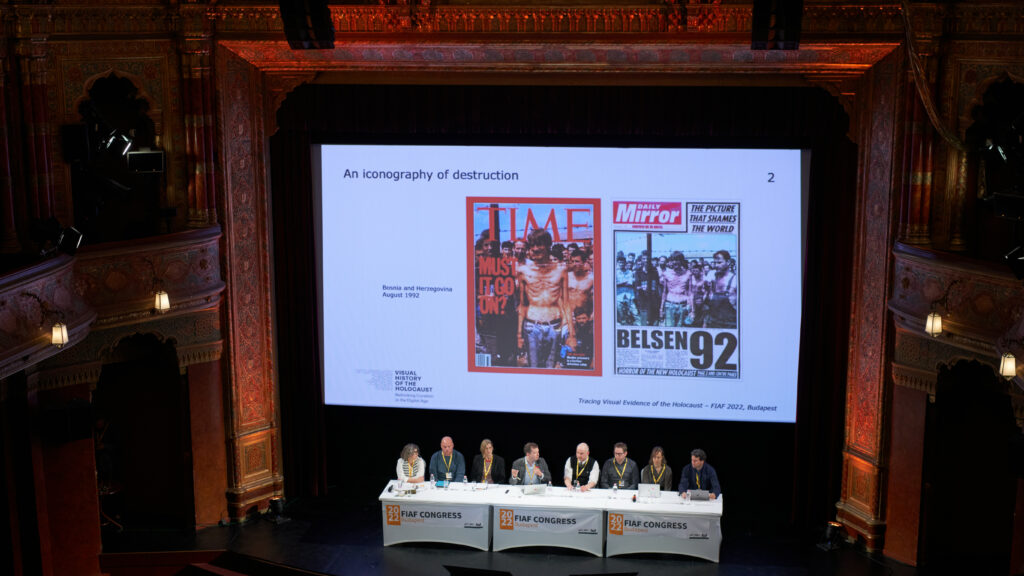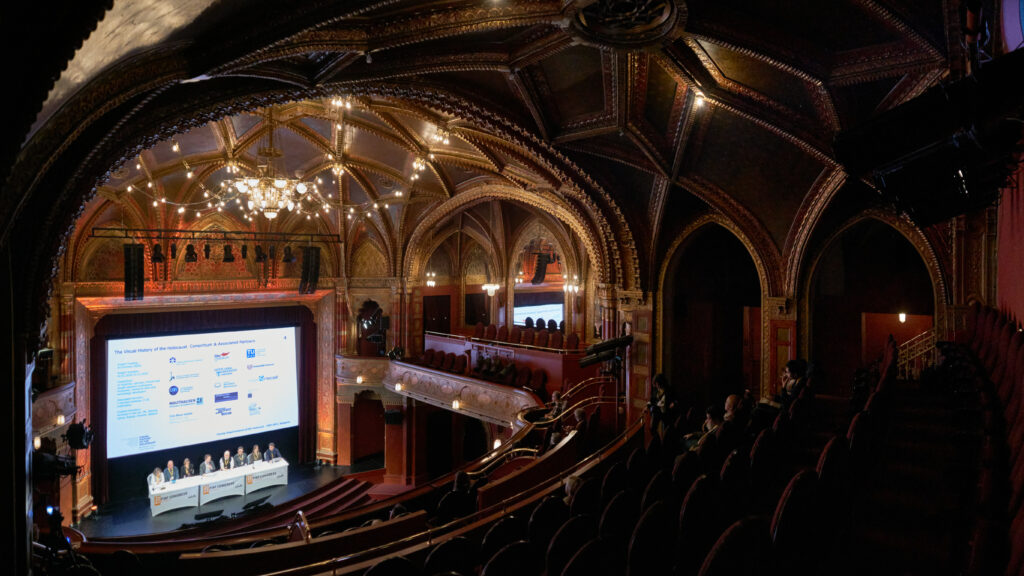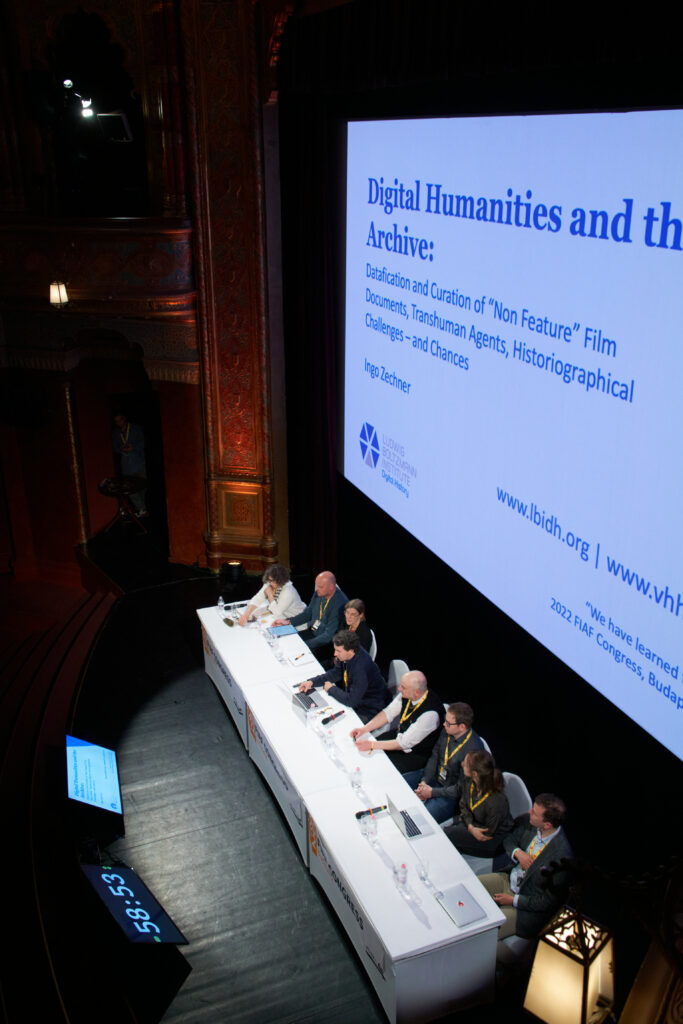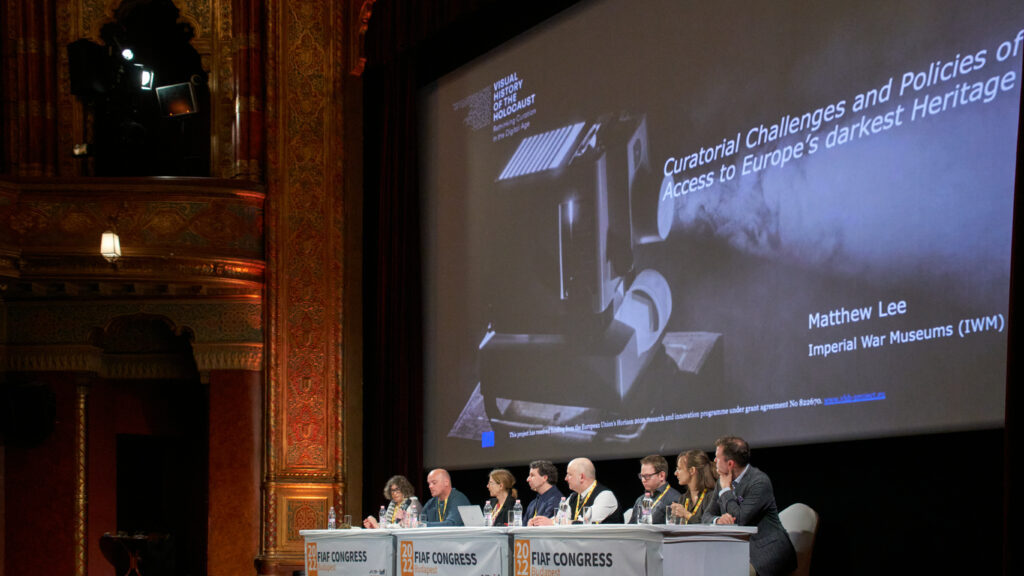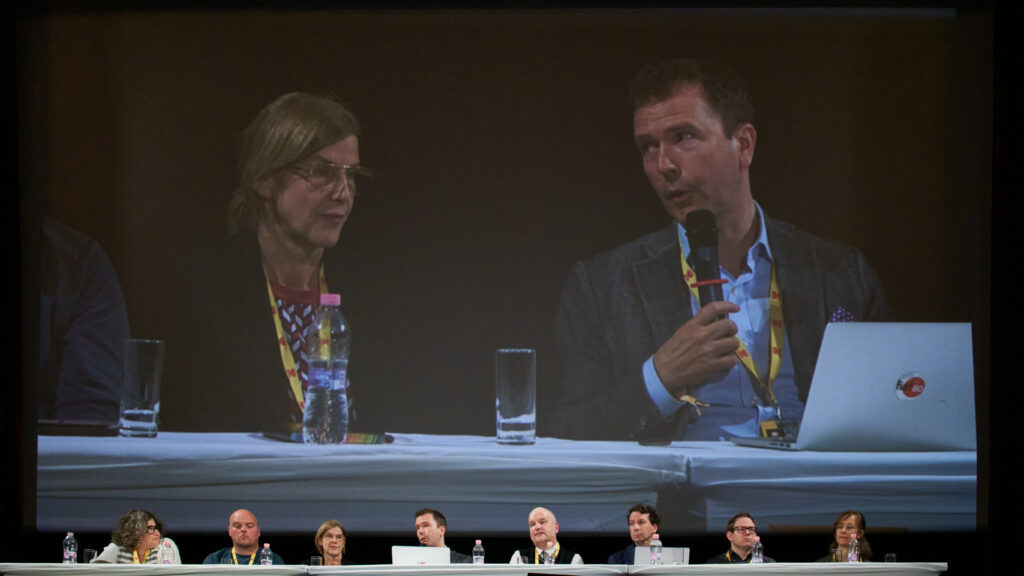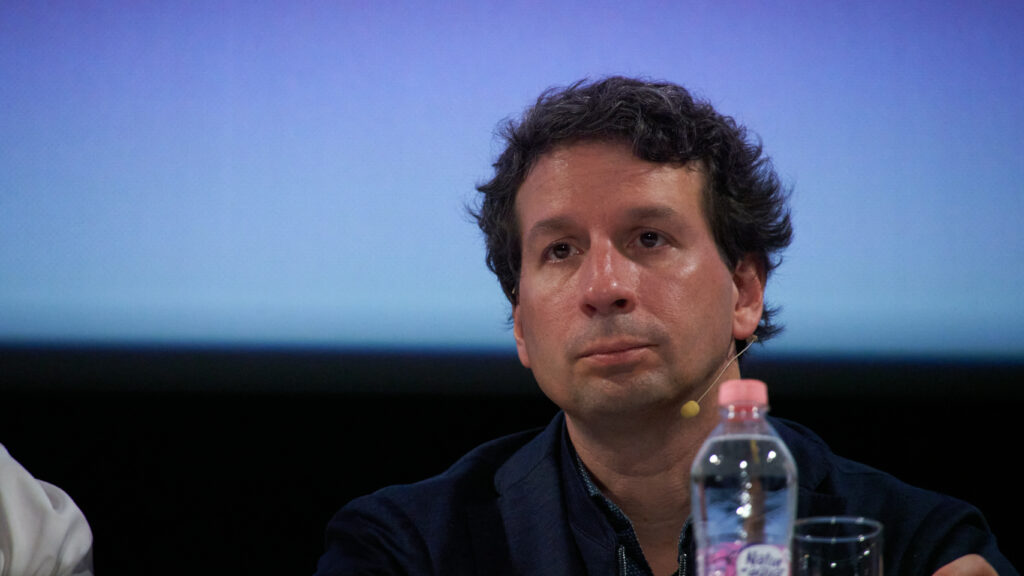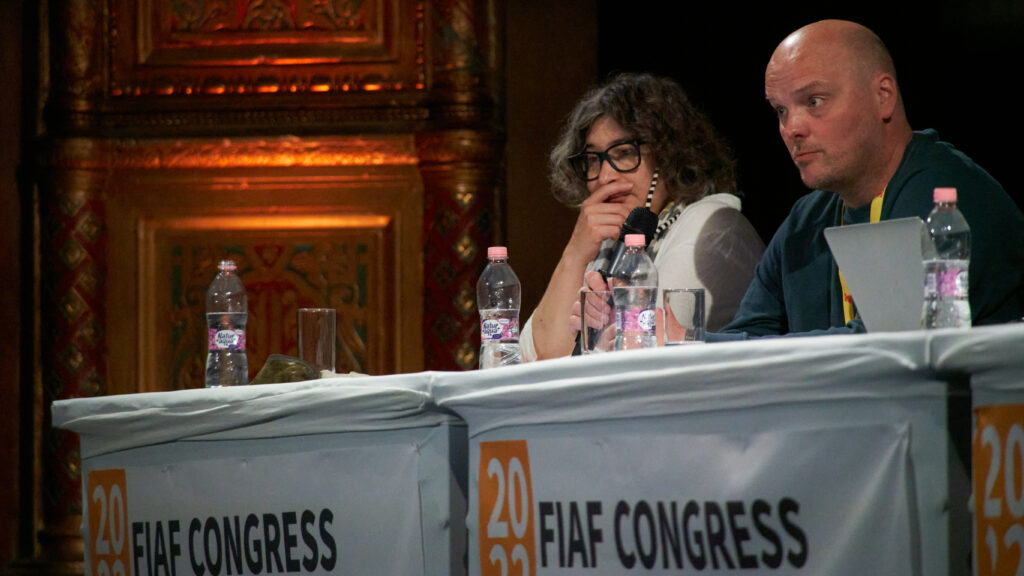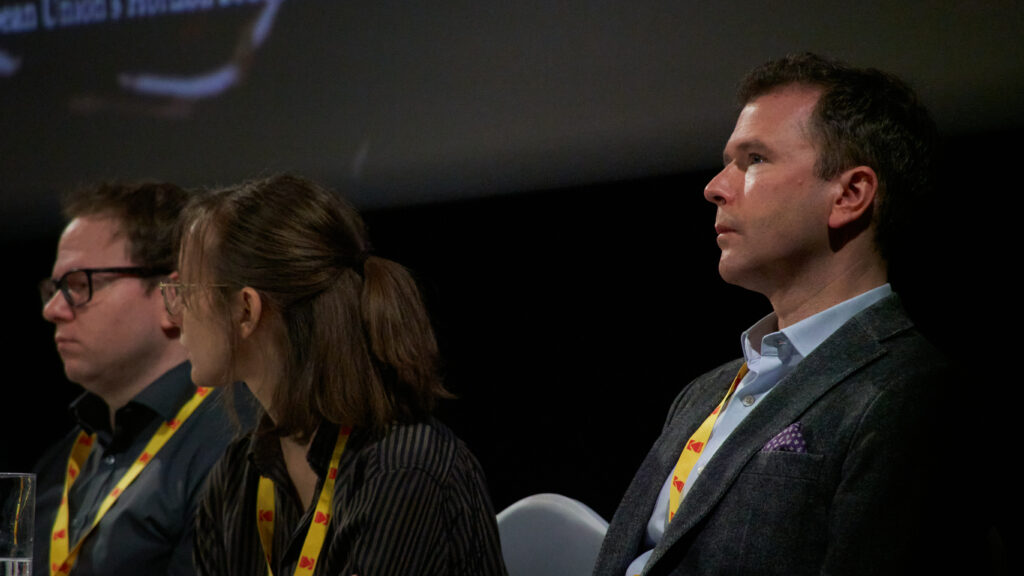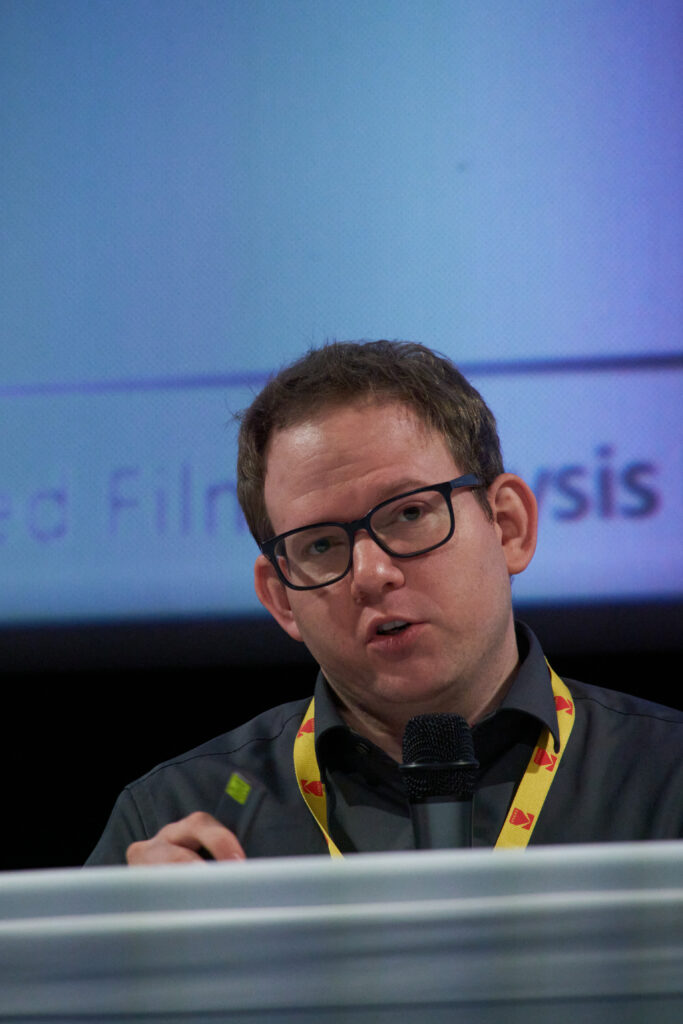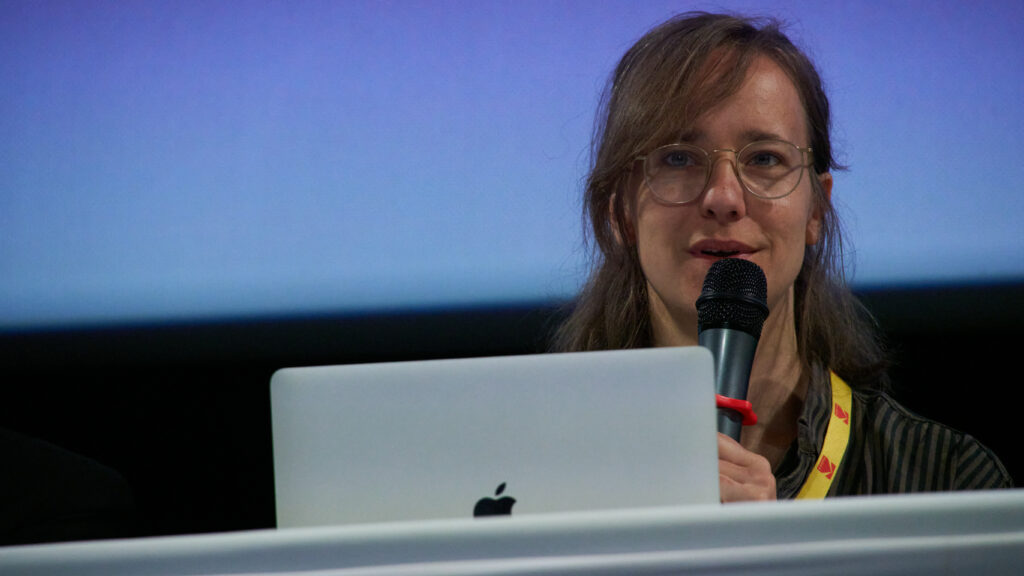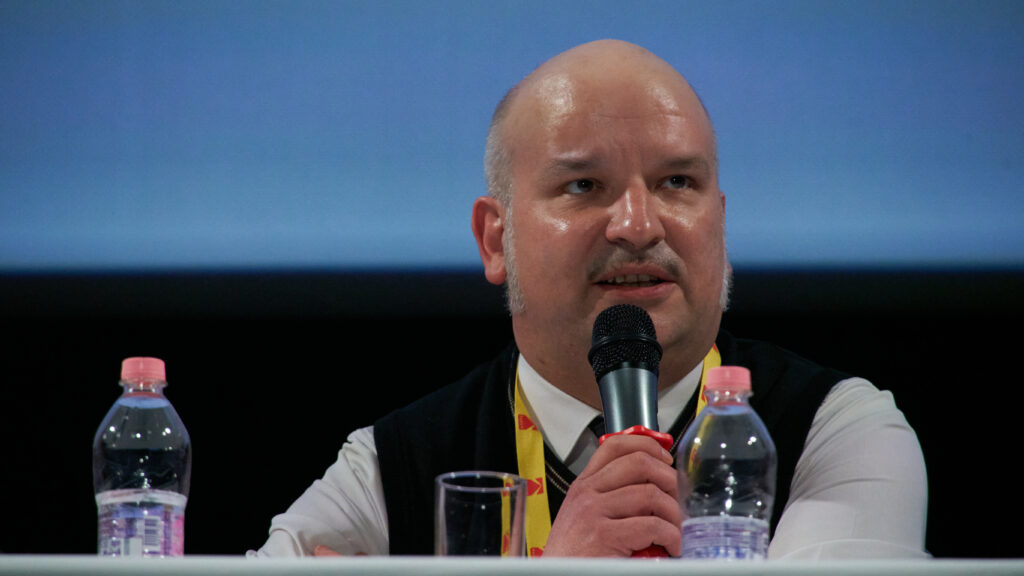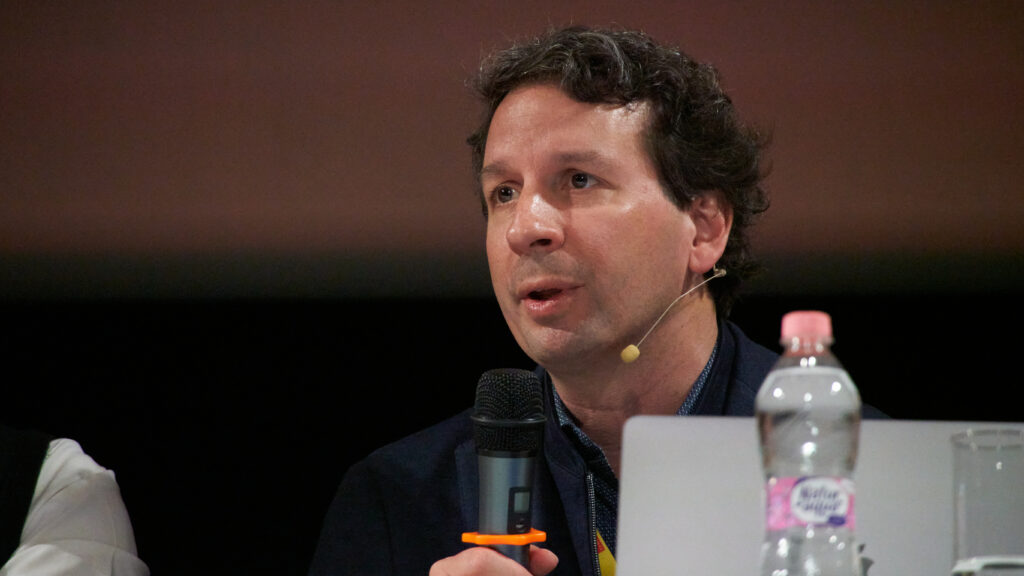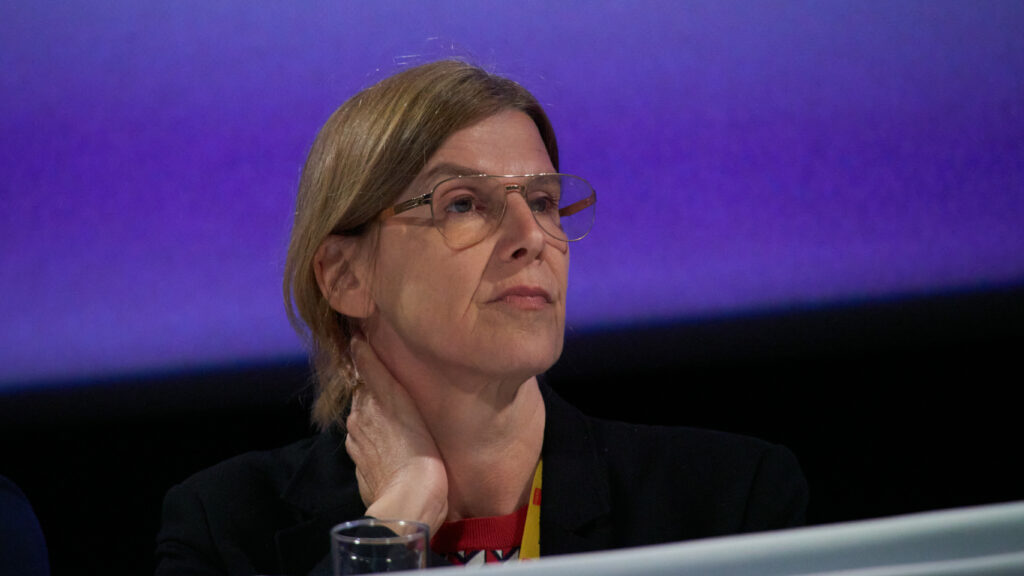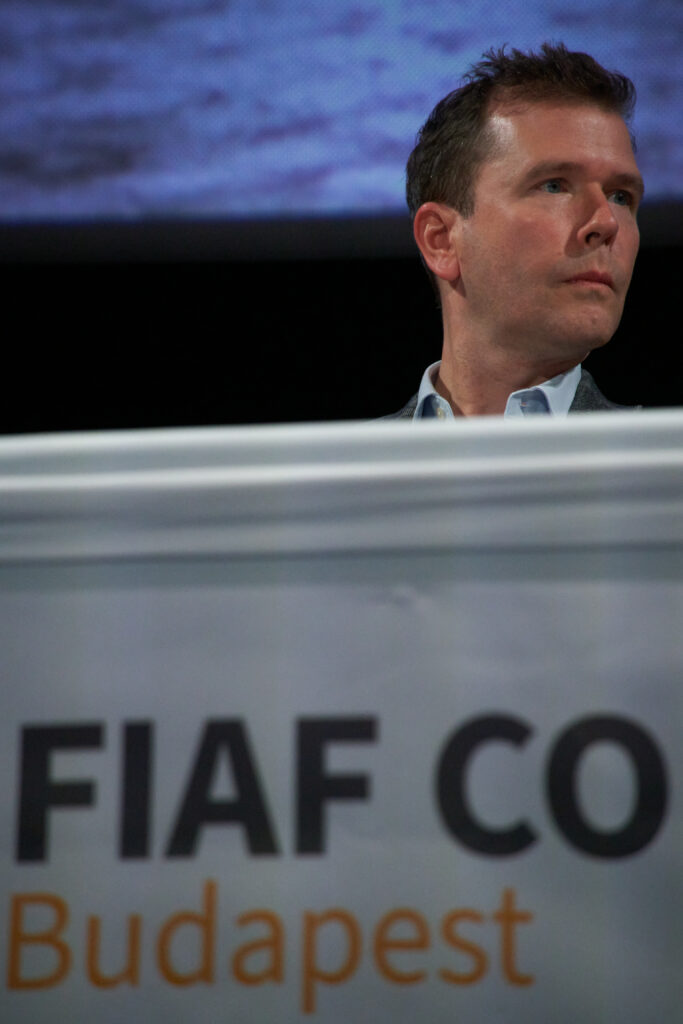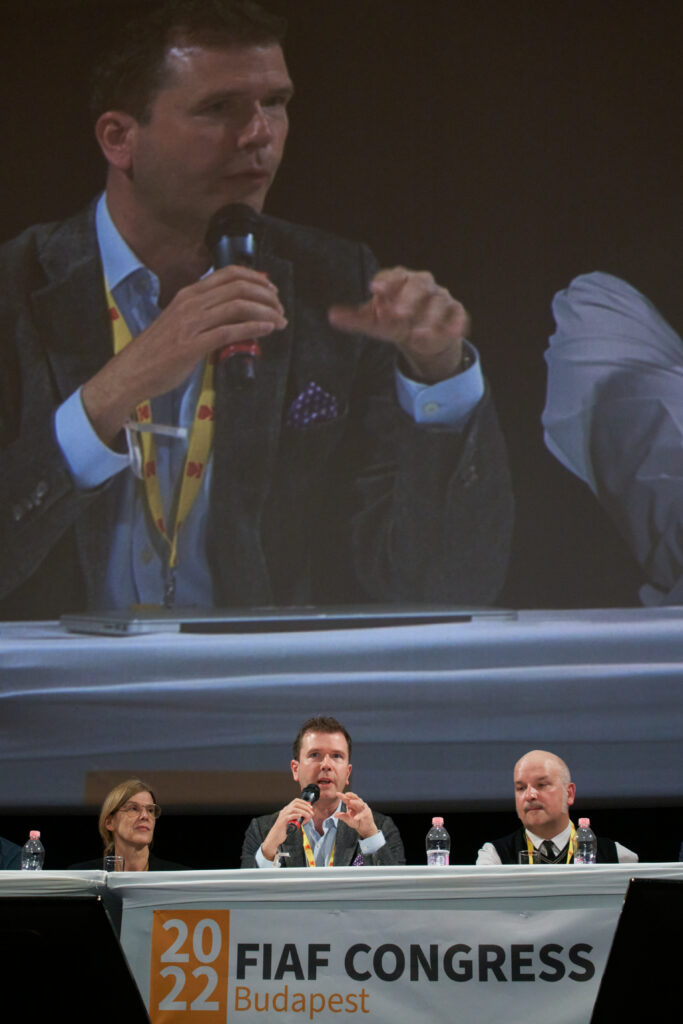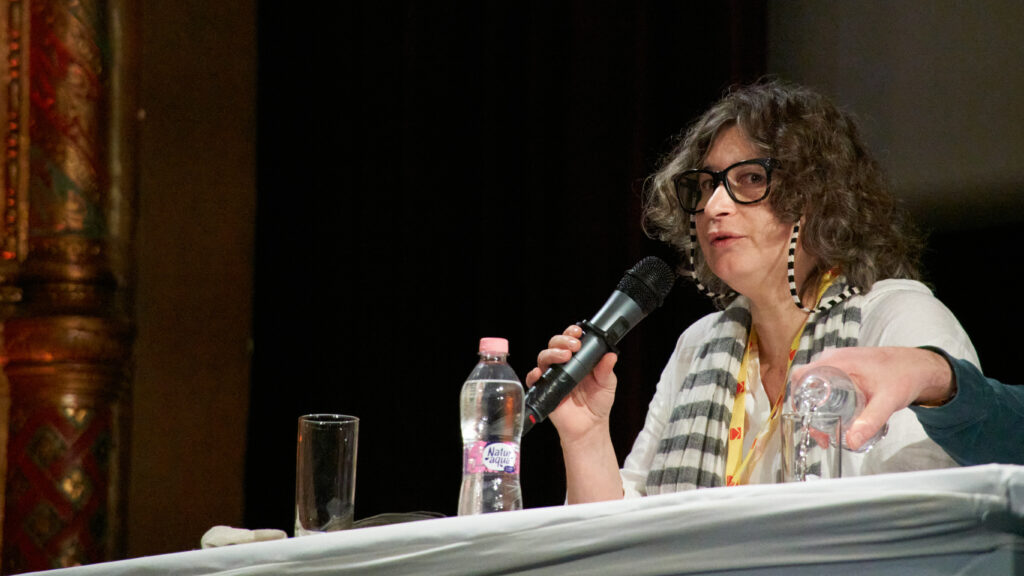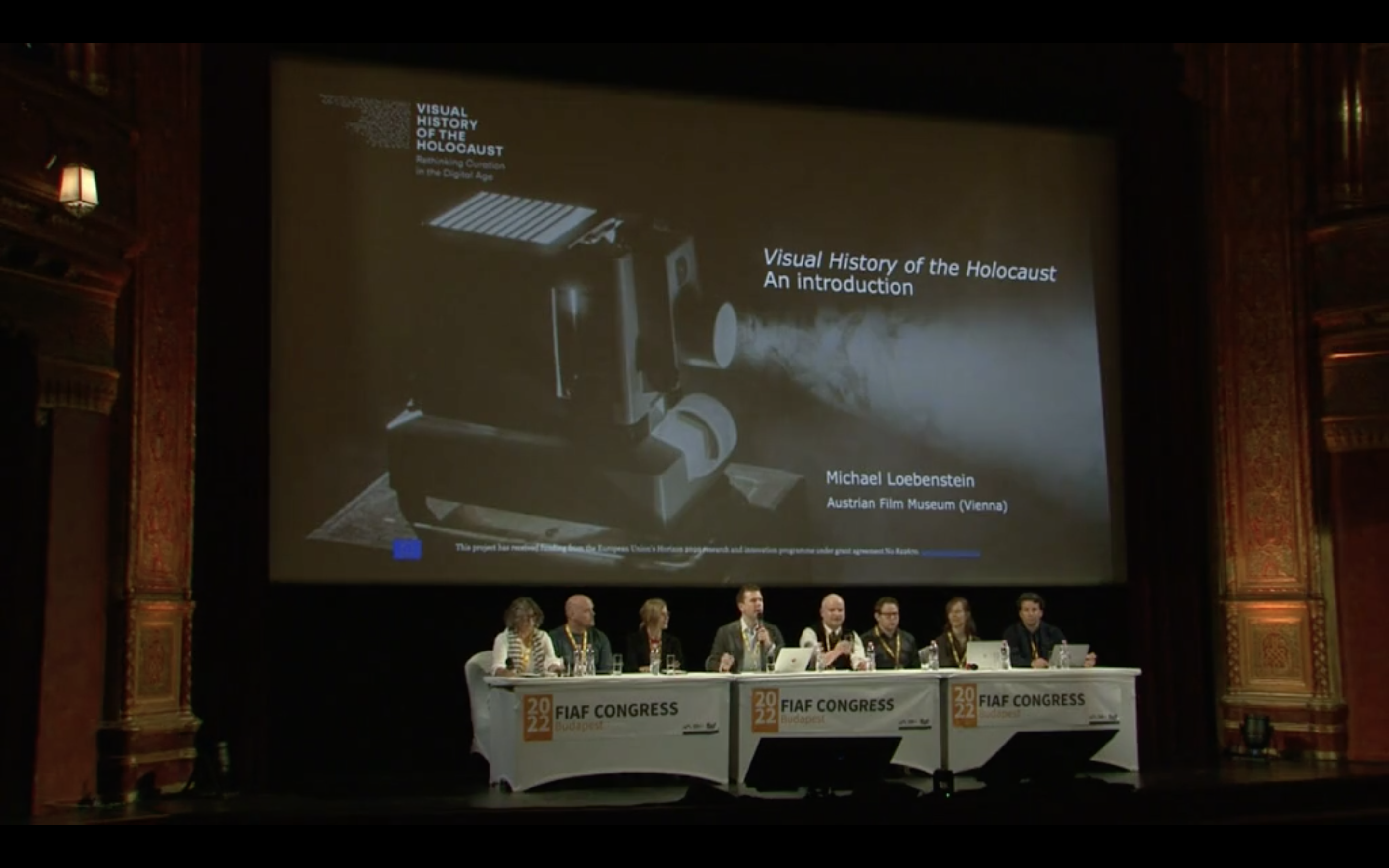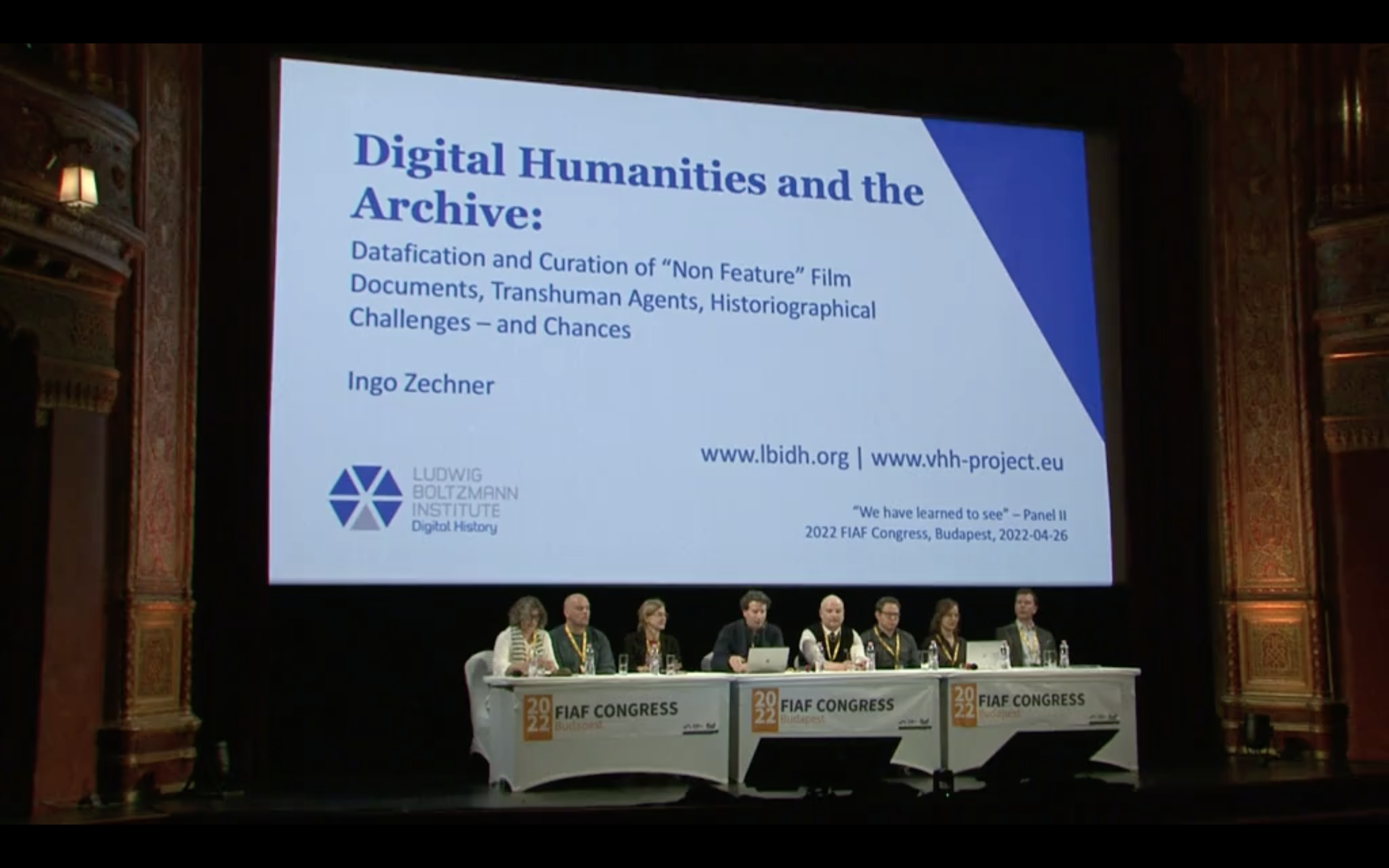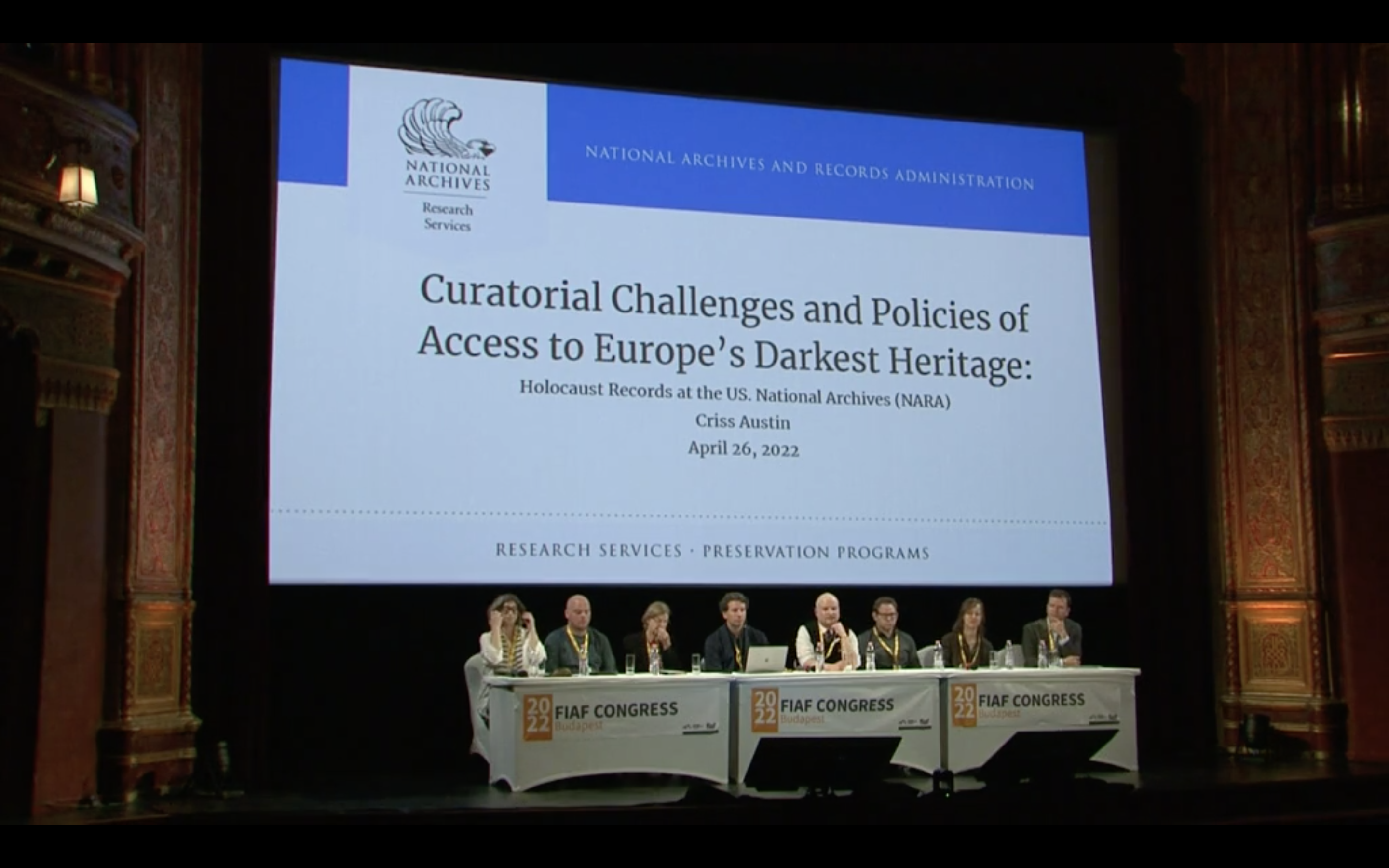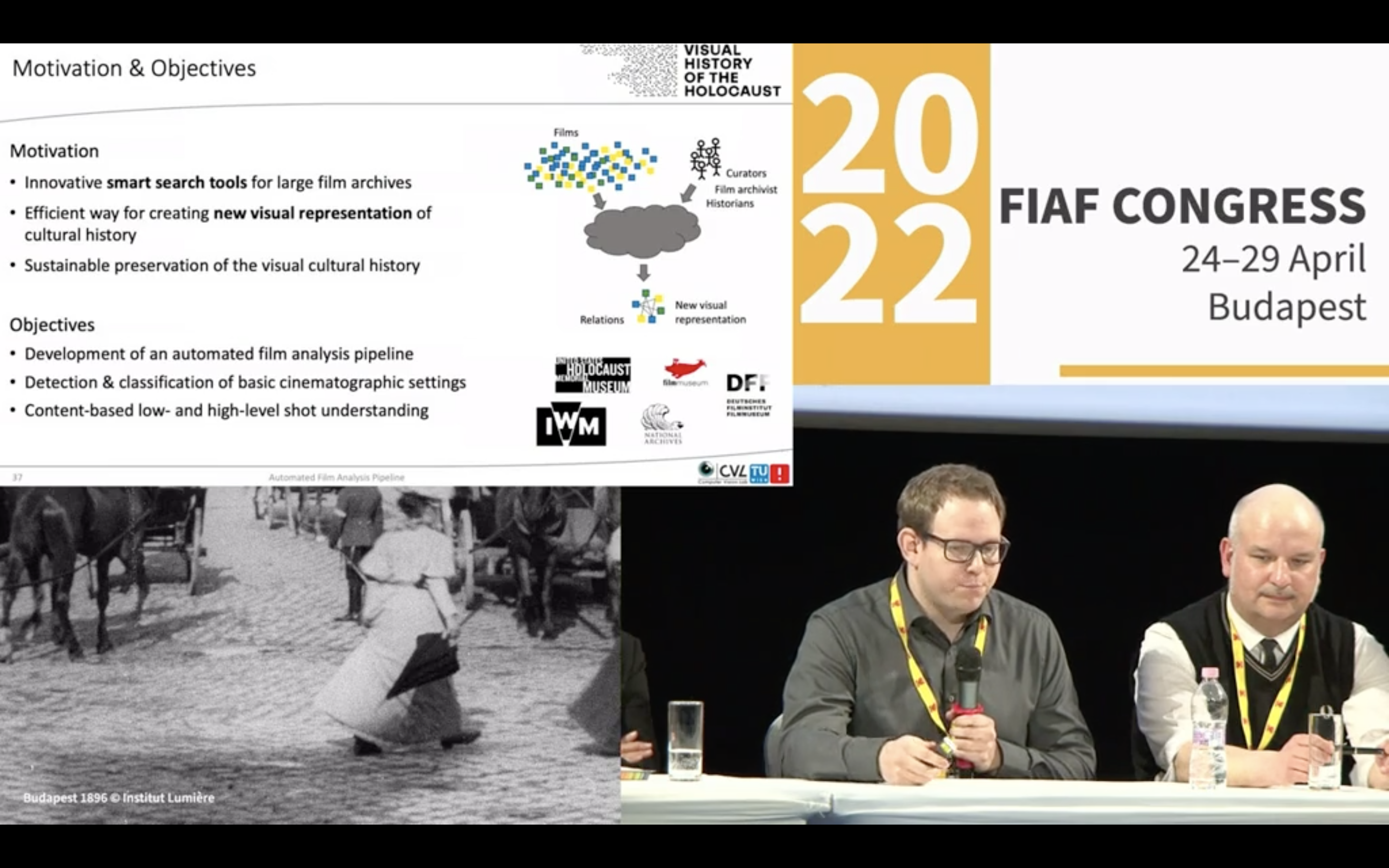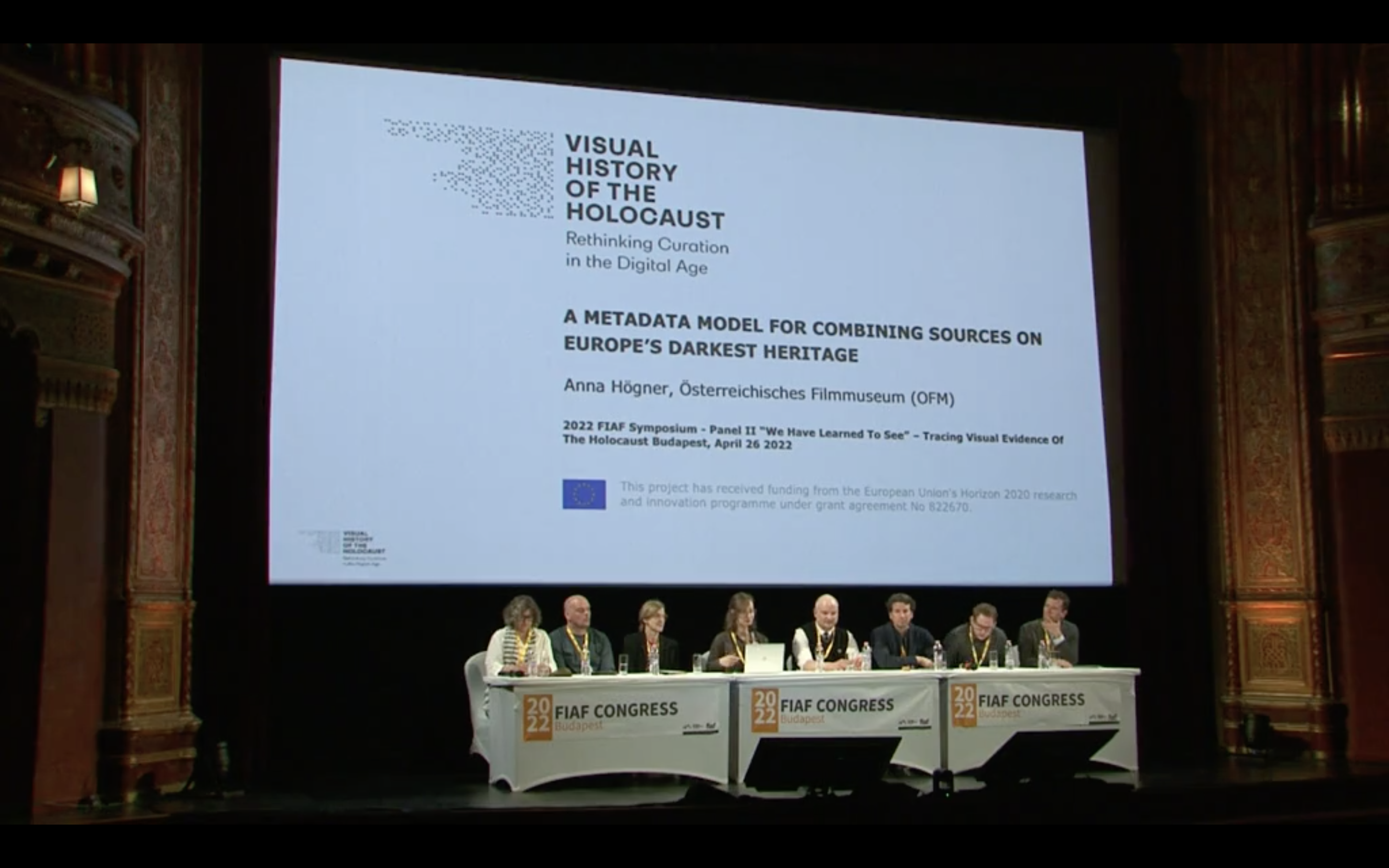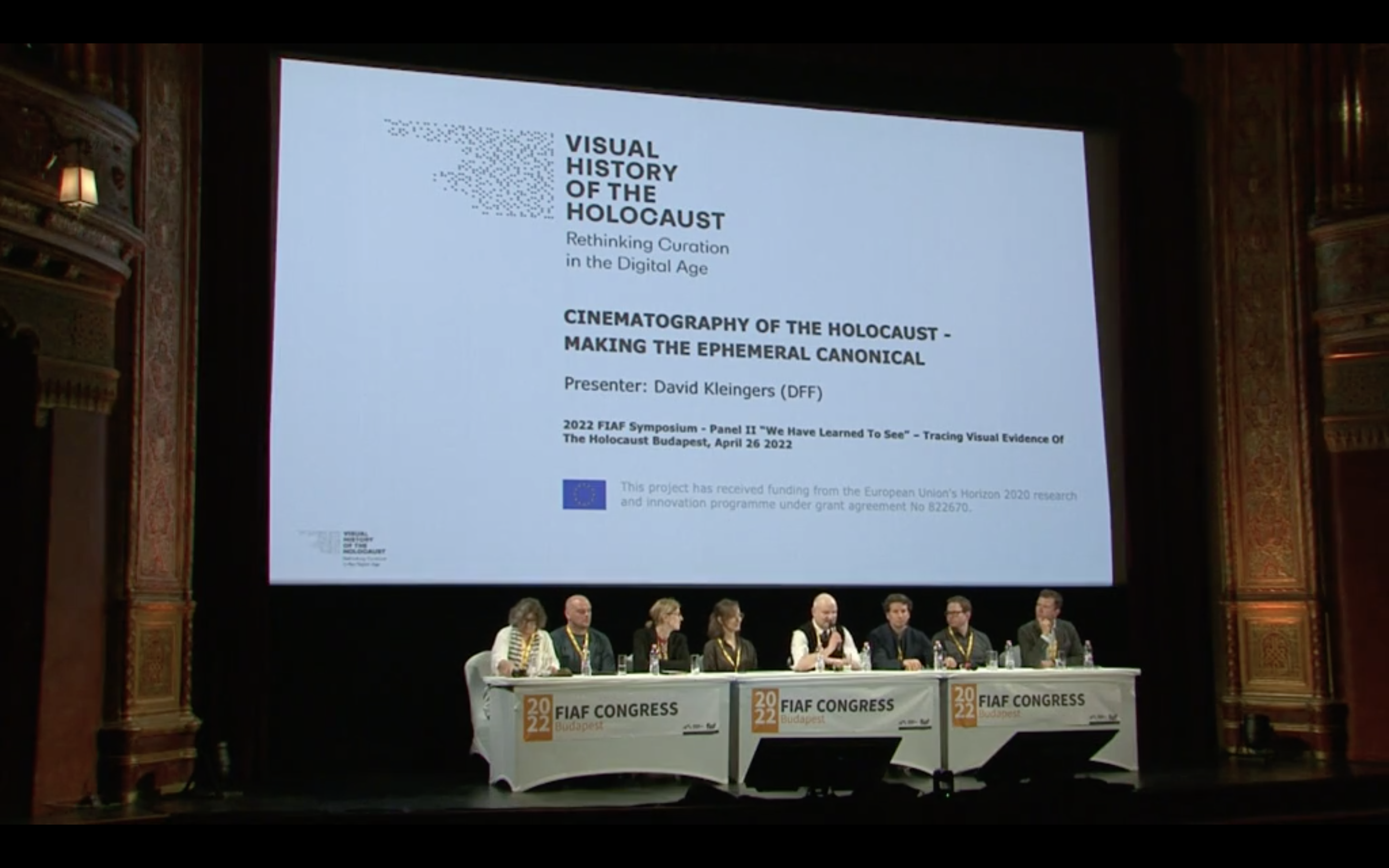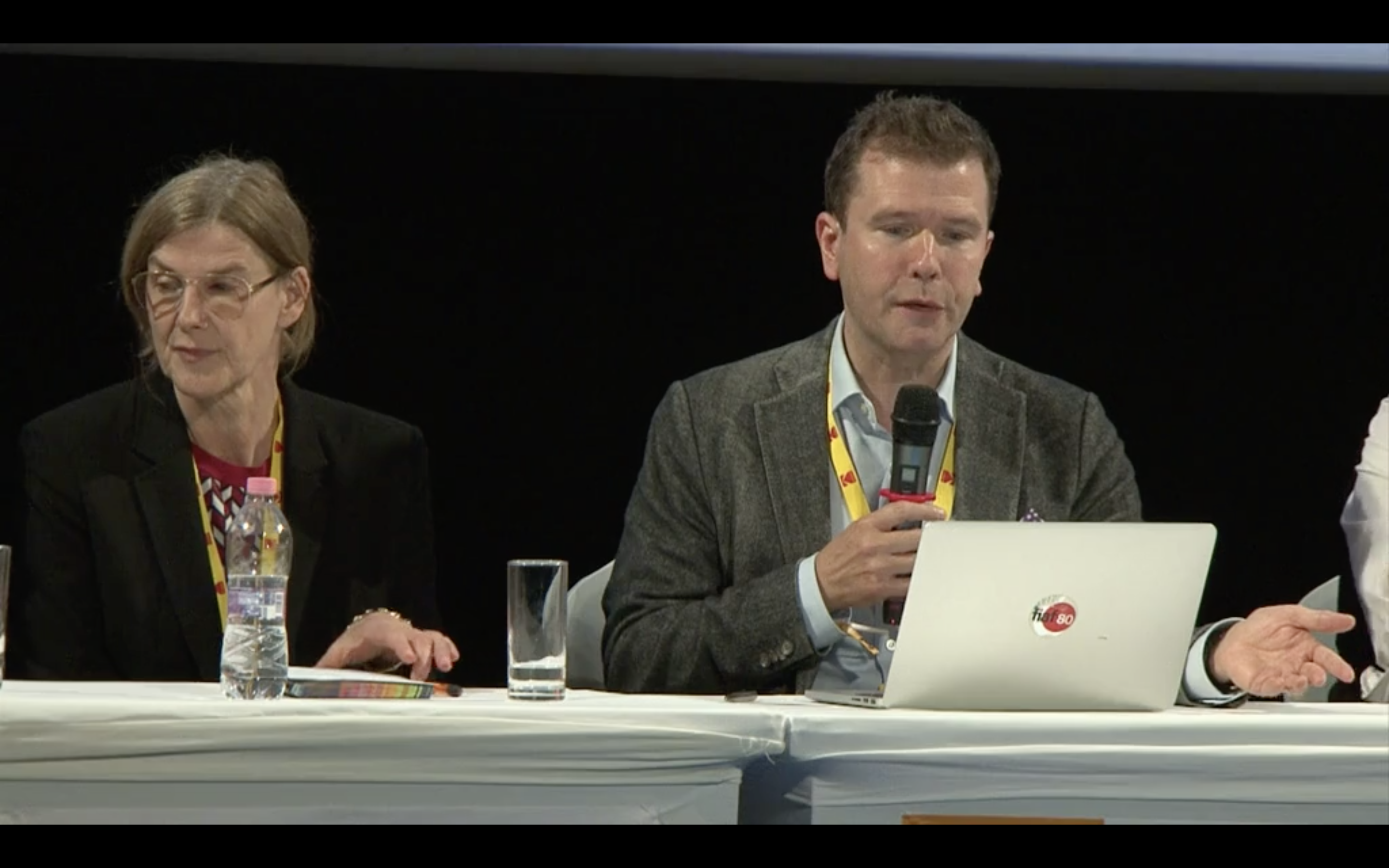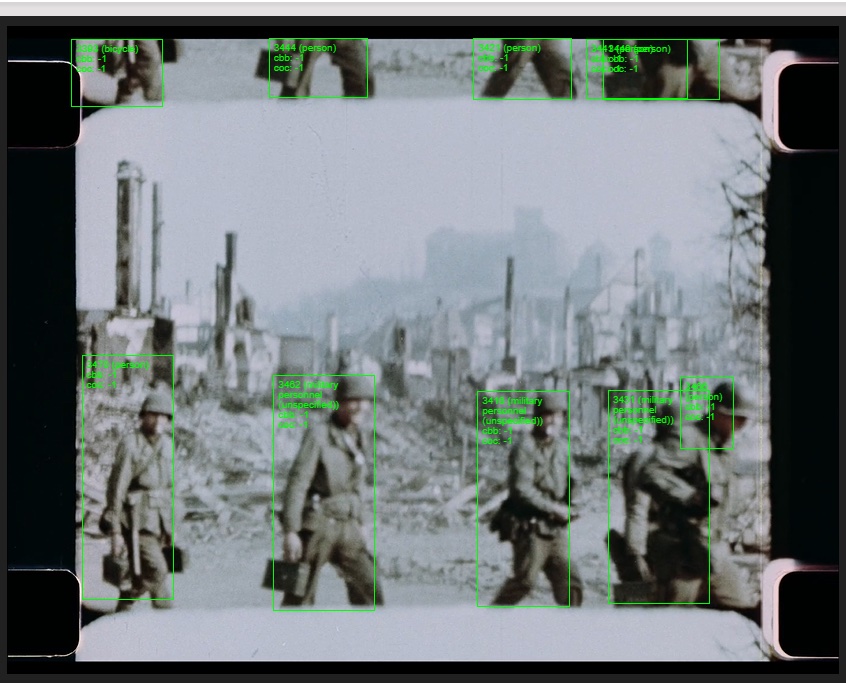Our understanding of history particularly draws on our shared visual cultural memory. Over the last decade the use of digital technologies to process, analyse, enrich and discover historical filmic records has radically transformed our perception of and dealings with non-feature film heritage materials. Historical sources that had been practically invisible to the public have become increasingly discoverable and available for re-use and for deep, personalized engagement by citizens.
This “digital turn” provokes a reinvigorated approach to questions of curatorship How do we regulate access to, and moderate re-use of sensitive and complex historical records? . What strategies and measures do we employ to ensure the integrity of these new digital collections, in alignment with our “legacy” archival practices?
Dealing with Europe’s darkest heritage, the EU-funded Innovation Action Visual History of the Holocaust. Rethinking Curation in the Digital Age focuses on filmic records produced by Allied forces and relating to the discovery of Nazi concentration camps and other atrocity sites. In the course of the project, these historical films, which currently are dispersed across archival institutions in the United States, the United Kingdom, Russia and other former Soviet Republics, are aggregated, digitized, analyzed and annotated. Using existing and emerging technologies, including advanced digitization, automated analysis of images and text, time-based annotation and location-based services, the project provides tools to trace these images and explore how they have been used and reused. It develops strategies to discover and unlock layers of context and meaning inaccessible through traditional linear narrative modes.
For our panel we invite archivists, curators and scholars working with liberation footage to discuss curatorial, ethical, technical, and conceptual considerations surrounding these sensitive materials. How do FIAF archives manage their holdings of atrocity footage? How can we trace the afterlife of these images through space (as dispersed cultural heritage) and time (the visual afterlife of the Holocaust in popular culture)? How does datafication change the status of film as source? How can state of the art technology help us to achieve a broader understanding of these materials and their historical significance? And which of our findings and results can provide FIAF archives with new approaches, methods and tools to digitization, curation and databasing of non-canonical film records?
Program
Link
Agenda
Link
